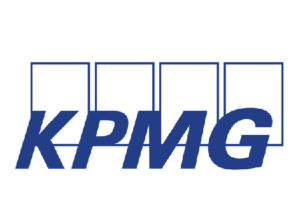Last week the world woke up to the implausible, the United Kingdom voting to leave the European Union. Immediately global and domestic equity markets have been volatile with rapid downside moves while perceived “safe” assets such as gold and US Treasury bonds soared in price. REIT stocks, perhaps a leading indicator of the market reaction and a flight towards the tangibility of commercial real estate, have fallen less than the market averages in the days since the BREXIT. All of these reactions, and most that will occur in the coming weeks, are simply reactions to the uncertainty; as nothing has really happened yet. Here is what is known so far:
The UK will suffer from the uncertainty in the short term and probably the long term, assuming Parliament moves forward with the voters’ wishes. Local and especially multinational firms are undoubtedly going to curtail plans for investments in the UK and may even scale back workforces – or at a minimum – rethink future hiring decisions. This alone can and probably will put the UK into a recession, the severity of which could be high if the uncertainty persists. The main unknown factor is how the European Union will react; if they seek to be punitive and harsh to serve as a warning to other countries considering defection, then this could be an ugly “divorce”. Since the UK did not adopt the Euro, this “divorce” is somewhat analogous to a couple separating who never joined finances – still chaotic but not as bad as it could be.
The British Pound will remain low and the US Dollar high. The currency moves, mainly a flight to Dollars from Pounds and Euros, should persist for some time, with higher volatility of course. This will harm the UK the most, and the US will see some benefits in terms of lower fuel costs and prices of import goods. Conversely, US exports will be more expensive so trade flows could become more imbalanced. According to the Wall Street Journal, the UK only accounted for less than 5% of US export volume, so the direct effect should be minimal. Nevertheless, the commercial real estate sectors serving trade and manufacturing could see decreased demand in some instances.
Interest rates in the US are likely to remain low. The “flight to safety” has made US Treasury bonds of all maturities very popular and thus yields are likely to stay low for some time. Further, it is far less likely that the Federal Reserve will move rates up or take other tightening measures this year. This has broad reaching benefits for the domestic real estate markets all around.
BREXIT May Benefit the US Commercial Real Estate Industry
While the jury is still out on the final impacts to the US economy and real estate markets, most noted economists believe that BREXIT will have relatively minimal impacts directly on the US macroeconomy. Further, the flood of capital will actually provide some benefits and firms may direct investment dollars and expansion plans to the US and away from the UK and Europe. To the downside, the strong dollar will hurt export trade and possibly tourism, which has been facing headwinds from overseas for several quarters already. The large multinational corporations with international revenue could see weaker revenue and profit forecasts in the coming years without question. Still, overall “Mainstreet USA” is not likely to see immediate direct effects. When watching the moves of the stock indices it is important to remember that those firms derive anywhere from 30% to 70% of their revenue from outside the country on average; thus a stock market “crash” does not necessarily mean a domestic calamity.
Commercial real estate in the US is most likely to benefit based on what seems probable at this time. Investors seeking yield and safety will find that our real estate assets are a relatively safe place to park capital. The tangibility and low volatility of commercial real estate – even in low cap rate markets – stands to attract investment into the US property markets. This likely flood of capital and lower interest rates could actually cause prices to increase in many markets, especially the major “24-hour” hubs that foreign investors historically prefer. While the long term is far less certain – and there is undeniable risk that the BREXIT could serve as catalyst for a global recession – US commercial real estate looks to be an attractive investment even in those scenarios.
Follow Kevin Maggiacomo on Twitter: @Maggiacomo.
Commercial real estate in the US is most likely to benefit based on what seems probable at this time. #CRE












































